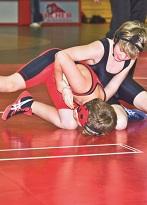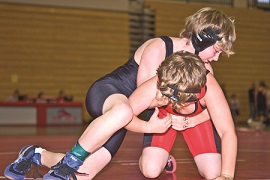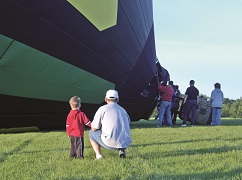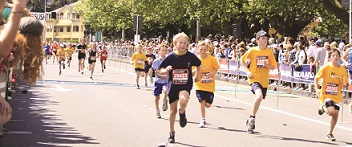
The days of packing up the station wagon and taking the family on vacation are far from extinct; however, the new breed of family outing is changing the shape of leisure travel. These days, we're seeing the trend of bookending vacations around one family member's sports event. This might be a cheerleading competition, a Little League tournament or a wrestling meet. On the other end of the age spectrum, it might mean the whole family following Mom or Dad to a destination marathon or triathlon.
Either way, it's a great opportunity for travel and when the competition is done, for family togetherness. But what about in the meantime? Parents and/or siblings can get bored waiting for the sports event to end and the vacation to start. That's why savvy sport and business planners are increasingly incorporating activities for non-athlete family members into their agenda.
I have been involved in the travel and event planning industry for more than 10 years, working at the hotel, destination management and organization management levels. I've had the opportunity to work with a variety of groups in a variety of settings. I'm aware of the importance of keeping people happy -- not just the main event participants (in this case, the athletes) but the people traveling with them. And as a Certified Meeting Planner, I'm aware of importance of creating and managing a budget for these events.
I'm also aware of the psychology behind these programs. Just as they do in the business industry, individuals who travel to compete in sports programs often make friends with their fellow athletes. Family members, by contrast, may be new to this scene and feel isolated. It's essential to help them get connected to their new surroundings and to one another so that everyone is happy. The first step in doing so is to find the right partners to help you.

An event planner's first call should be to the local convention and visitors bureau. CVBs have access to, and knowledge of, information on service providers in the area. These may include tour groups, babysitting services and party planners. This is my favorite option because it's free to the group putting on the event, but provides a large number of options to participants.
Having people make their plans directly with the vendor avoids any obligation for the group, but still points people in the right direction for events. The particular group's interests might include spa days, museum outings, fun tours (Jeeps, ballooning, swamp tours, sporting events), entertainment and more. Depending on the size of the event, the CVB may help you to find local vendors to 'sponsor' or offer discounts for the attendees. This is all information you should add to your sports event's website.
While the sports event will take priority in your planning, explore the available options in advance, and disseminate information ahead of time. Depending upon the location and season, it may be more difficult to plan events on short notice, and the most popular tours and activities may be booked. If I am including a group tour or activity during one of my events, the timeline for planning typically depends on how much I need to promote the event. The more I’ll need to promote to get participation, the earlier that event needs to be planned.
Have all the Information Ready
Help out your potential partners by having the following information on hand. I often use the term, 'history,' which in this case means using records from previous events to get a sense of what my needs will be. Your information, plus history, should include the following information:
The date(s) of your sports event
Any data you might have on the demographics of the group: ages of athletes, parents and children (some of this may be guesswork, and may fall into brackets such as preschool-age children, elementary or middle school students, teens and adults)
The nature of the sports event: what hour(s) will the sports event be held, and do you expect to need to have activities planned during those times? If so, for what age group?
Any information you might have about other activities your participants have enjoyed in the past, such as museums, cultural or historical sites, sports or recreation, shopping, etc.

Having a spouse/guest hospitality room or area can help bring people together. Some areas can be more sophisticated, having cyber cafe facilities, while others may just have refreshments and perhaps information on tours and activities available. Craft supplies for small children (including take-along kits that could be carried to the sporting event to keep kids busy instead of bored) might be a good idea. Either way, it's a great way to help facilitate interaction among participants who might otherwise feel left out.
Make sure your website, as well as all e-mails, materials and other communications that are sent out in advance of the sports event, as well as throughout it, including information on the availability of the hospitality suite. It's a good idea to hold an initial gathering of family members in the hospitality suite before the sports event officially starts. This will give you the opportunity to present information about tours and activities that are available, as well as to allow all participants to meet one another.
Setting a Registration Fee
Most spouse/guest programs carry a registration fee. When calculating this, take into consideration several factors:
Are any tours included with the event? If this is the case, then most details need to be ironed out prior to establishing the registration rate. If the organization is subsidizing a portion of the cost, then there’s a bit of flexibility. If the group grows or reduces in size enough that the cost changes, then your group may be able to absorb this. If not, you’ll need to establish the registration fee to cover either outcome. If any tours or activities will be add-ons to registration, you need to just establish a price range to be sure your costs are covered regardless of the final count – entrance fees, transportation and any extras (such as souvenirs or food).
Make sure participants in spouse and child programs are aware of what their registration fee does and does not cover. For example, the fee may cover the cost of the hospitality suite, any welcoming presentations, a name badge and a souvenir. If tours and other activities carry an additional charge, make that clear. In addition, any activity intended solely for the athletes is generally off-limits to spouses and children. Examples might include admission to trade shows, product demos or festivals offered by sports event vendors, meals served to athletes and materials that are given to them as part of their participation, such as T-shirts and more. Making this clear at the outset can save you from complaints during the event.

Activities for family and friends may take several forms. They may be related to the sports event itself (for example, a children's race that is held in conjunction with a marathon in which adults are participating) or they may be thematically different (craft programs, etc.) In terms of spouse programs, I have worked with local vendors to offer spa events, historical tours, cooking demonstrations or wine education and pairing programs. Ask your CVB representative or hotel concierge what activities are offered locally that would be popular with kids of different age groups.
Monitor Your History
The most important tip I can give planners is to keep good records from year to year. If your counts aren’t staying true to past years, historical information will help you see when it may be time to cut losses and cancel an event or at the very least, reduce your commitment to a specific number of attendees. For example, there’s no sense paying for a 54-passenger coach if only 20 are registered.
There's no science to programs for family members; the visible effort to create hospitality and to connect individuals can go a long way toward making them feel welcome, and helping them enjoy the experience as much as the athletes.

